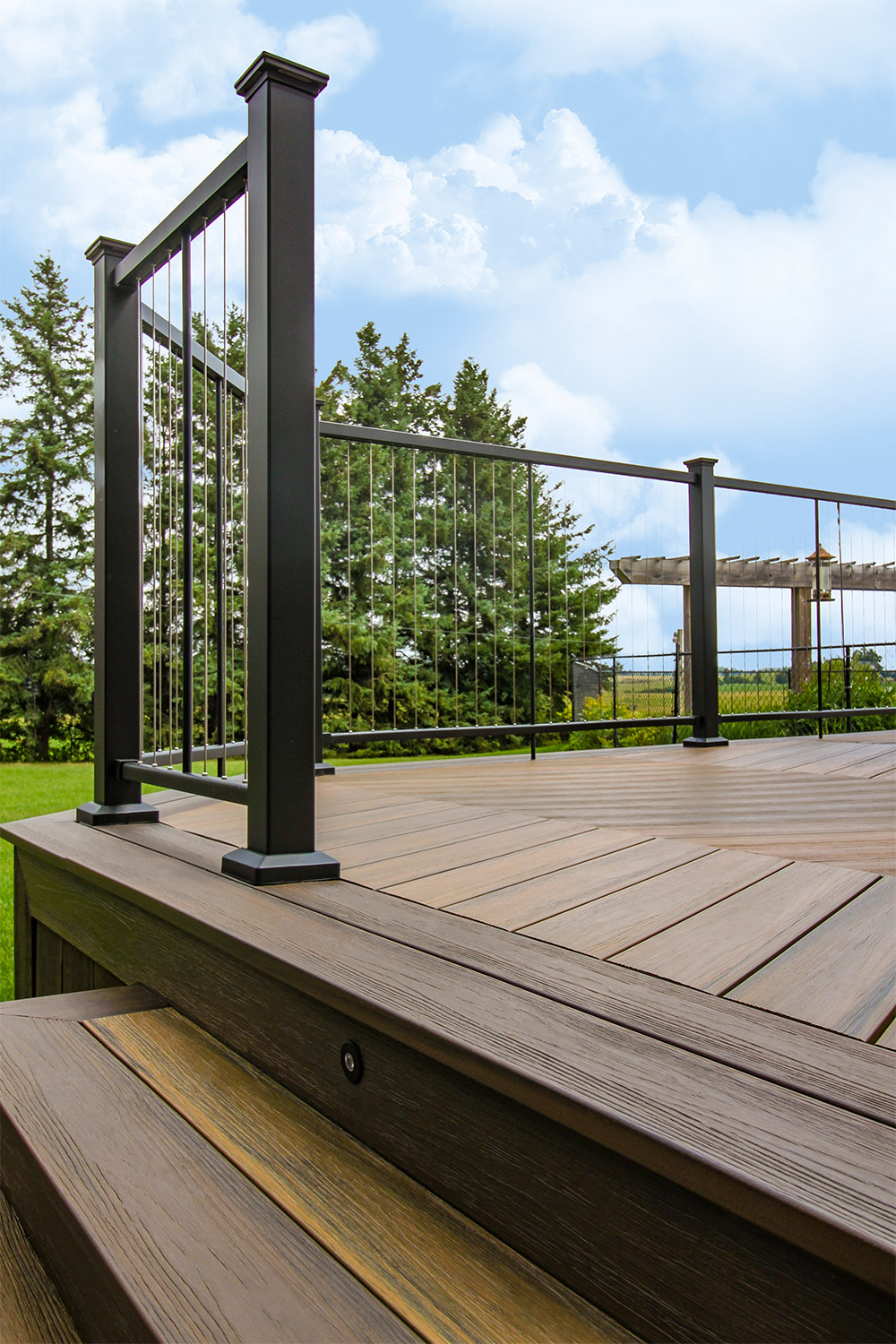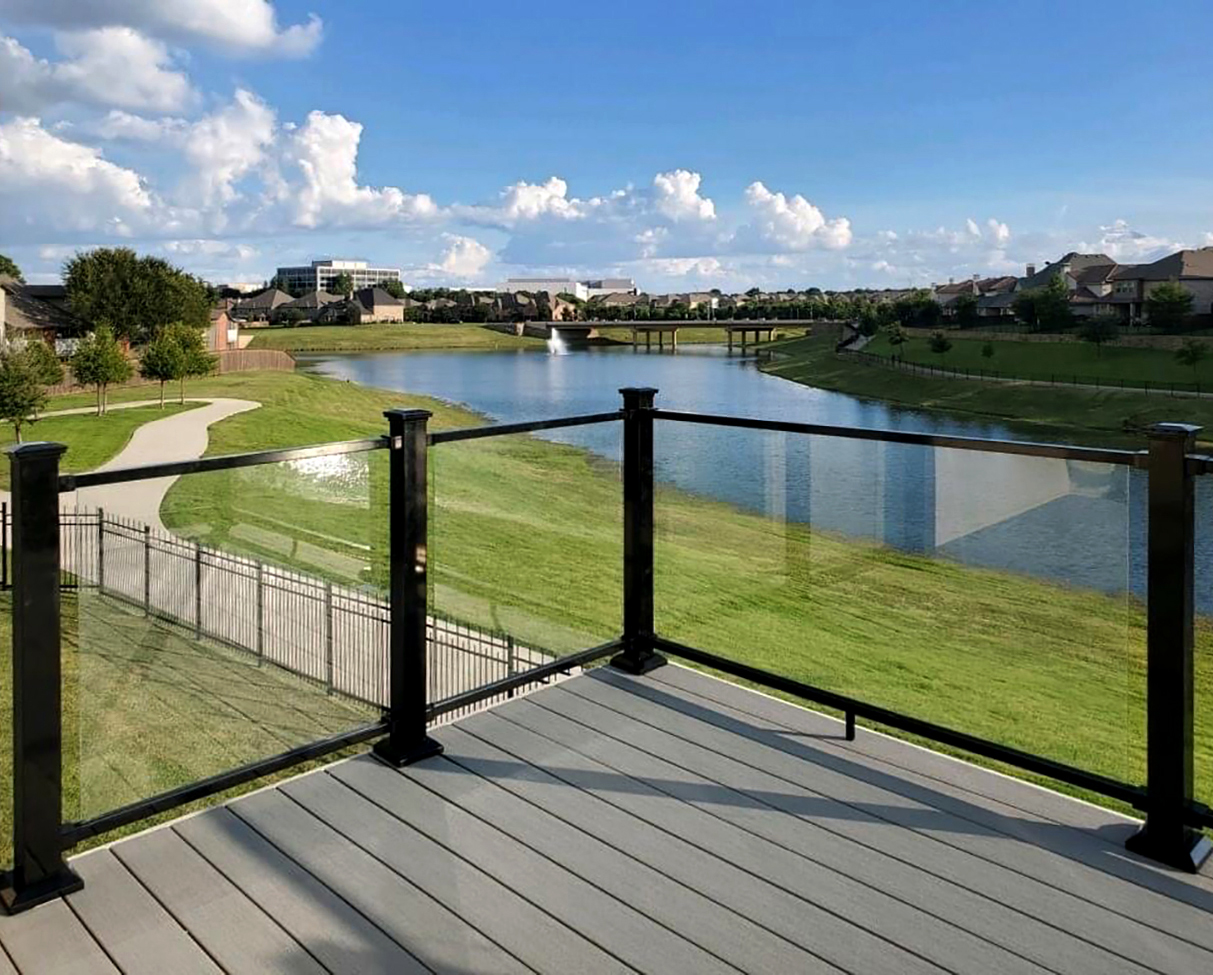╳

Get The Latest On Our Greatest
Subscribe to Our Company/Product Updates

Monday, August 30, 2021
In a study conducted over the course of four years, the U.S. Consumer Product Safety Commission reported nearly 224,000 people injured nationally due to a deck or porch accident. Nearly 15 percent of those injuries were a result of a structural failure. While concerning, this data goes to show the importance of adhering to local building code requirements and safety recommendations when planning critical elements of your deck, including the deck railing.
What are the code requirements for deck railings and railing posts?
To establish your deck railing system as safe and fully compliant with building codes, start by making note of the primary factors listed below. As always, it's important to note that specific code requirements can vary regionally. For this reason, we recommend first reviewing your local building codes to ensure your deck railings stay code compliant.
Height: According to the International Residential Code (IRC), which is generally adopted by most U.S. cities, decks more than 30-inches above the ground require railings at least 36-inches in height measured from the deck’s surface to the top of the rail.
Strength: In keeping with IRC requirements, the deck railing system must be strong enough to withstand uniform loads of 50 pound applied horizontally or vertically to the railing. It must also be able to support concentrated loads of 200 pounds applied to railing panels and posts in any direction. That said, manufacturers like Fortress Building Products will double these numbers to ensure compliance with standard safety measures and the safety of customers while on deck. This means deck railing systems are commonly designed to resist a 500-pound concentrated load applied to railing panels and posts, in addition to a 125-pound uniform load applied to the infill of panels. If this information is not readily available while sourcing railing materials, consult with the manufacturer or supplier.
Spacing: In general, according to the International Building Code IBC, manufactured deck railing posts should be spaced no more than 8 feet apart. If deck railing posts are spaced further apart than 8 feet, it becomes exceedingly difficult to meet safety requirements given that they should withstand up to 200 lbs. of pressure from any direction at any single point on the railing panel or post. Similarly, balusters should be installed close enough so that the space between them is less than 4 inches. This is to protect small children or pets from injuries by preventing the ability to fall though wide openings. However, sometimes local building codes will have more stringent regulations, so check your local building department before you begin the deck building process.
Ready to install deck railings and railing posts?
With the knowledge of guidelines and codes requirements mentioned here, you are almost ready to install safe and sturdy deck railings and railing posts! But before you start, take a look at NADRA’s deck safety links. Or if you have any lingering questions, our straightforward installation guides will walk you through the installation process step-by-step.


Search